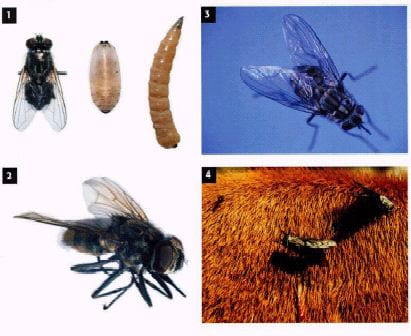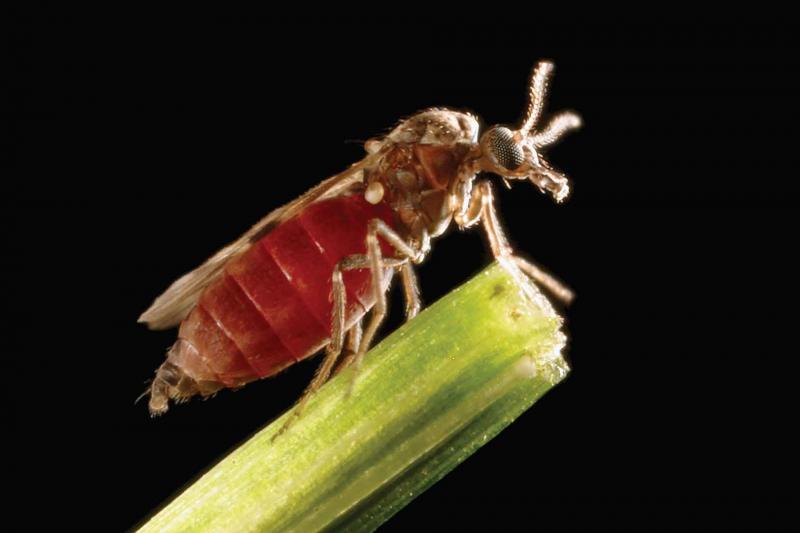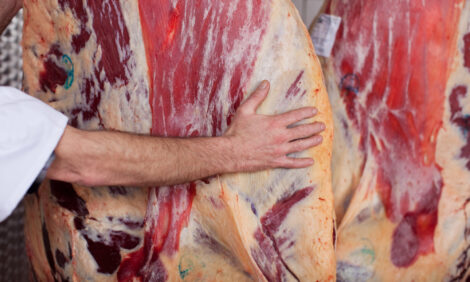



Canada embraces insect farming to help tackle food waste
Canada's AgriInnovate Program has given $6 million to Enterra Feed Corporation to build an insect farm that can reduce Canada's food waste while providing livestock feed.The Honourable Marie-Claude Bibeau, Minister of Agriculture and Agri-Food, has announced that Enterra Feed Corporation (Enterra) received $6 million under the AgriInnovate Program to help increase the production of sustainable, nutritious products to feed animals while helping to keep food out of landfills.
When making the announcement, Minister Bibeau said, "...our government wants to reduce food waste and we are counting on our entrepreneurs to help us get there. It is an important way to reduce our greenhouse gas emissions while helping Canadian consumers save money. The Enterra model is very promising, and our investment will allow them to continue their launch.”

This funding supported the construction of a full-scale commercial facility, as well as the adoption of innovative equipment and processes to increase production capacity and improve efficiency, making it the first operation of its kind in Canada. Through the AgriInnovate Program, Enterra has established a state-of-the-art, 188,000-square-foot production facility just north of Calgary, Alberta in Rocky View County. At this facility, Enterra has been producing insect-based feed ingredients, with products for the pet food, poultry and wild bird markets being shipped throughout North America as well as recent expansion to the European Union.
The announcement took place during a virtual visit at Enterra’s new facility, where the Minister saw how the company is helping to reduce food waste through sustainable insect production.
Enterra has developed proprietary farming methods to raise black soldier flies, a beneficial, non-invasive insect species with a rich nutritional profile. The company uses recycled food waste from local farms, grocery stores and food production facilities to feed the insects, which are then dried and processed into animal feed ingredients and fertilizer for plants. At its new facility, Enterra is able to recycle more than 130 tonnes of food waste per day. Operation of the facility also brought more than 65 jobs to the local economy.
Keith Driver, President and CEO of Enterra explained, “...our sustainable approach of using pre-consumer food waste and upcycling the nutrients allows valuable nutrients that are often left unutilised or underutilised to be captured. The resulting products are high-quality feed ingredients with unique beneficial properties that markets are demanding around the world. This work is revolutionary and now Enterra is a world leader in harnessing the power of insects to feed and care for the world.”

The announcement complements the Government of Canada’s actions to reduce food waste through the first-ever Food Policy for Canada. For example, the $20-million Food Waste Reduction Challenge will fund the most innovative, transformative and high-impact solutions to food waste in Canada. The Government of Canada is also leading by example and will invest $6.3 million to cut its own food waste in federal facilities.
Background
- Over half (35.5 million tonnes) of Canada's food supply is lost or wasted annually and $49.5 billion of that wasted food is avoidable.
- Eight percent of all greenhouse gases worldwide are the result of food waste.
- In Canada, food is wasted from farm to plate, through production, processing, distribution, retail, food-service and at home. The Government of Canada is committed to advancing innovative and novel approaches to reducing food waste, which can improve food security, save consumers money and support Canada’s transition to a greener economy.
- The Food Waste Reduction Challenge was launched by Minister Bibeau on 19 November 2020. Challenge Streams A and B focus on business model solutions that can prevent or divert food waste at any point from farm-to-plate. The launch of Challenge Streams C and D, which will focus on technological solutions to food waste, is planned for spring 2021.


